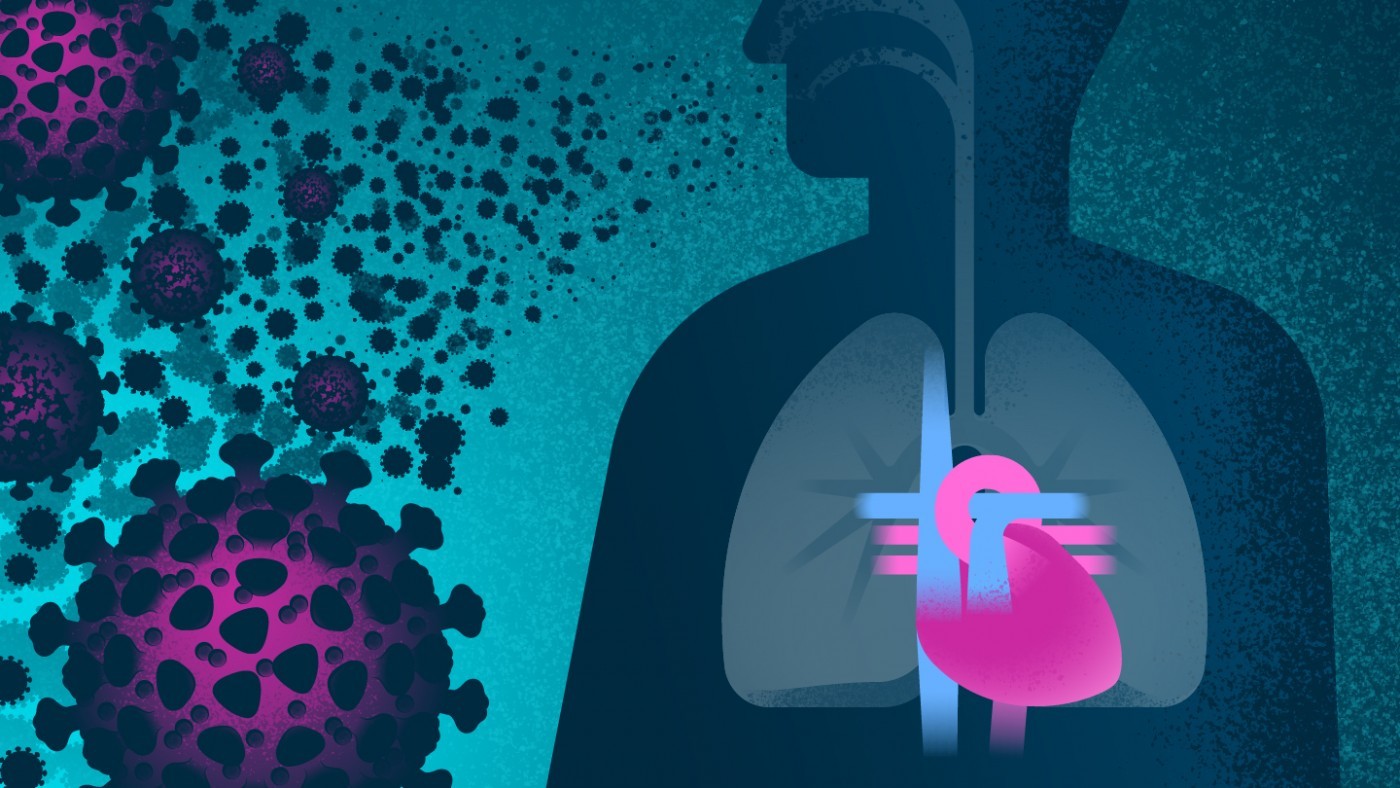Gladstone NOW: The Campaign Join Us on the Journey✕

Senior Investigators Bruce Conklin and Todd McDevitt want to find out how COVID-19 is causing heart failure.
It’s well-known that COVID-19 affects the respiratory system, infecting healthy lung cells with the COVID-19 virus, but if it spreads to the heart it could become a much more deadly disease. A recent study found that in more than 10 percent of COVID-19 cases where heart damage occurred, there was no history of cardiovascular disease. Furthermore, a blood marker for heart damage (troponin) was the single best predictor of death, suggesting that heart damage is a key factor in mortality. Now the virus has been found in heart tissue, and the virus can infect human heart cells in a dish, stopping them from beating. Investigating the link between COVID-19 and damage to the heart is vital to preventing cardiovascular effects in future patients and perhaps finding a treatment for COVID-19 induced heart failure.
Senior Investigators Bruce Conklin, MD, and Todd McDevitt, PhD, are investigating how COVID-19 might damage the heart by asking two questions: How susceptible are the cells in the heart to infection by the virus, and what pharmaceuticals could be used to lessen damage to the heart or prevent the virus from infecting heart cells altogether?
Investigating heart cells and their susceptibility to the virus starts with gathering the cells themselves. In this case, the team will use cardiomyocytes, or heart muscle cells, and cardiac microtissues derived from human induced pluripotent stem (iPS) cells. Studying cardiomyocytes derived from human iPS cells offers the unique chance to follow the virus through the stages of infection and replication in its host. Cardiac microtissues offer an additional advantage in that they are a better approximation of a complex tissue like the heart than simply cardiomyocytes alone.
“Cardiac cells and microtissues are invaluable tools for human cardiovascular research that enable new insights into the causes of disease and discovery of potential therapies. They can model what the heart experiences when challenged by infectious diseases like COVID-19, so that we can directly observe the consequences,” explains McDevitt.
The team will use CRISPR interference (CRISPRi) to discover drug targets that could block viral infection in cardiac cells and microtissues.
“What CRISPRi allows us to do is screen the effects of silencing thousands of genes in parallel simultaneously. It’s like being able to calculate thousands of equations at once, rather than completing them one at a time,” says Conklin.
Screening with CRISPRi will identify genes in cardiac cells that modulate the levels of ACE2, a protein the virus uses to enter human cells. The results of the screening are the specific genes that can be targeted and manipulated by pharmacological agents, or drugs, to prevent or reduce the viral infection of the heart.
With COVID-19, Conklin and McDevitt take the same foundational approach they have previously applied to other cardiovascular diseases. Their work will yield therapies that can be deployed side by side with pulmonary therapies to usher in better outcomes for patients.
Support Our COVID-19 Research Efforts
Gladstone scientists are moving quickly to respond to the coronavirus outbreak. Help us end this pandemic.
Science in Seconds | Researchers Pinpoint Key Gene Behind Heart Defects in Down Syndrome
Science in Seconds | Researchers Pinpoint Key Gene Behind Heart Defects in Down Syndrome
In this video, Gladstone scientists share how they used stem cells, gene editing, and AI to identify a gene driving heart defects in Down syndrome—and how reducing its levels in mice restored normal heart development, offering hope for future treatments
Gladstone Experts Cardiovascular Disease Data Science and Biotechnology Pollard Lab Srivastava Lab AI Big Data CRISPR/Gene Editing Human Genetics Stem Cells/iPSCsScience in Seconds | The Thinking Microscope: Research Powered by an AI Brain
Science in Seconds | The Thinking Microscope: Research Powered by an AI Brain
In this video, Steve Finkbeiner and Jeremy Linsley showcase Gladstone’s groundbreaking “thinking microscope”—an AI-powered system that can design, conduct, and analyze experiments autonomously to uncover new insights into diseases like Alzheimer’s, Parkinson’s, and ALS.
Gladstone Experts ALS Alzheimer’s Disease Parkinson’s Disease Neurological Disease Finkbeiner Lab AI Big DataVisualizing Stem Cell Technology: An Animated Explainer
Visualizing Stem Cell Technology: An Animated Explainer
In this animated short, Deepak Srivastava explains how scientists can reprogram ordinary skin or blood cells back in time—turning them into induced pluripotent stem cells which are capable of becoming any cell type in the body.
Gladstone Experts Stem Cells/iPSCs



